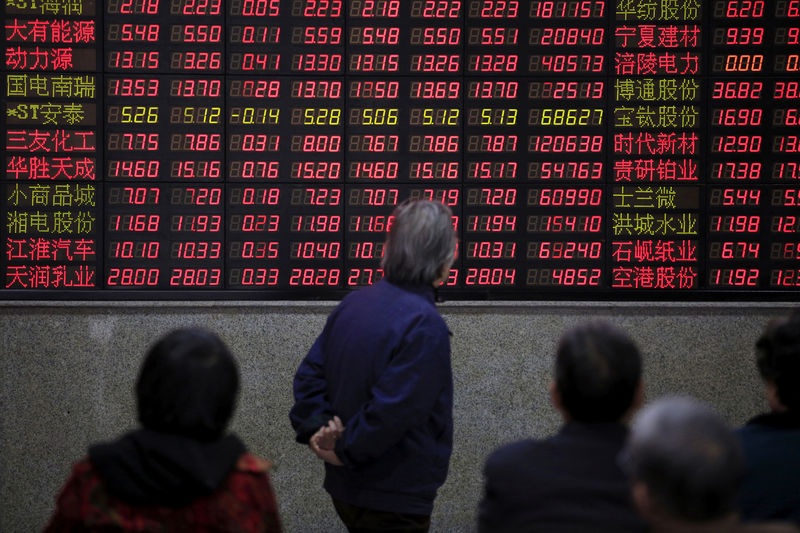By Rodrigo Campos and Samuel Shen
NEW YORK/SHANGAI (Reuters) - Global index provider MSCI will quadruple the weighting of Chinese mainland shares in its global benchmarks later this year, it said on Thursday, potentially drawing more than $80 billion of fresh foreign inflows to the world's second-biggest economy.
MSCI also announced that it will add Chinese mid-cap stocks to its emerging market benchmark in November, boosting the number of Chinese constituents.
In a statement on its website, MSCI said it will increase the inclusion factor of Chinese large-cap stocks to 20 percent from the current 5 percent in two steps, in May 2019 and in August. As a result, the weighting of Chinese stocks in the MSCI Emerging Market Index will jump to 3.3 percent, from roughly 0.7 percent currently.
The announcement could add fuel to a stock market that has jumped over 20 percent this year, partly on hopes that Beijing and Washington will soon reach a deal to resolve their trade dispute.
Rival index publisher FTSE Russell and S&P Dow Jones Indices will both start adding yuan-denominated Chinese shares to their global benchmarks this year as Beijing steps up efforts to integrate China’s capital markets into the global financial system.
Fang Xinghai, deputy head of China's securities regulator, predicted foreign capital inflows to Chinese stocks this year will double to about 600 billion yuan ($89.76 billion).
MSCI said it will add Chinese A Mid-Cap shares, including eligible ChiNext shares, with a 20 percent inclusion factor, to the MSCI indexes in November.
After implementation, the MSCI Emerging Markets Index will include 253 large-cap and 168 mid-cap China A-shares, representing a weight of 3.3 percent in the pro-forma index.
Brendan Ahern, chief investment officer at Krane Funds Advisors in New York, which manages the KraneShares Bosera MSCI China A ETF, said: "I am almost crying. We have built the (ETF) in anticipation of this event. We anticipated that this inclusion would take place and built an ETF vehicle that investors could proactively take advantage of."

KBA is up 24.6 percent so far this year.